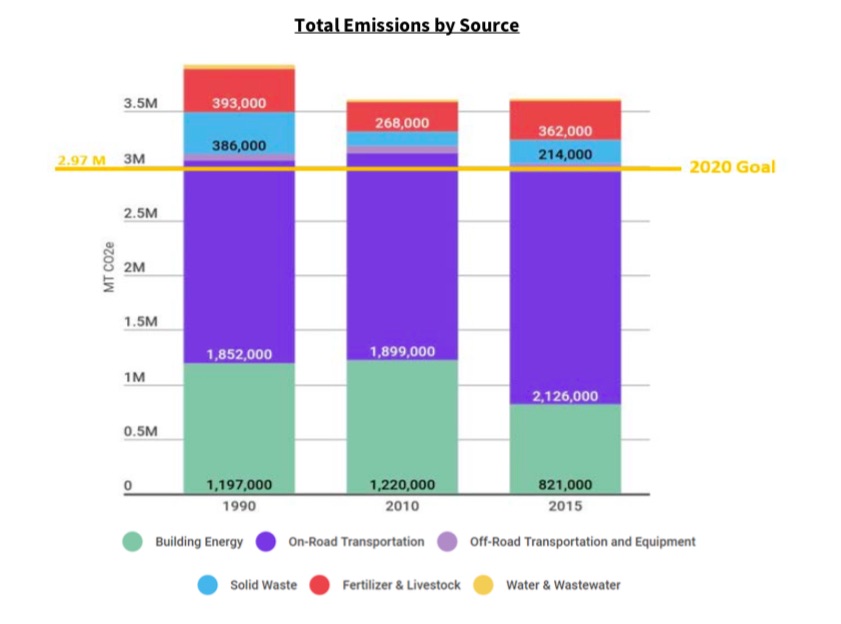By Steve Birdlebough
Redwood Chapter Transportation Chair
Many cities and counties are adopting emergency declarations regarding the Climate Disruption crisis. Some places have shown progress in reducing greenhouse gas emissions from their water and power sectors, however it seems much more difficult to reduce greenhouse gas (GHG) emissions from the transportation sector.
Reports and studies by the Air Resources Board tell us that during the next 15 years it will be necessary to reduce average vehicle miles traveled by more than 1% per year for each California resident. Merely shifting people into electric vehicles will NOT achieve the needed reductions in GHG emissions. In part, this is because many vehicles now on the road will be emitting greenhouse gases for years to come. 
A 1% per year reduction in driving may seem small, but steady reductions in our collective driving habit (vehicle miles traveled [VMT] per capita) will become significant. The Sierra Club can play an important role by educating local policy makers about equitable strategies to reduce driving while maintaining a healthy economy. Depending on the geography, work force, and economic drivers, policies to be considered are:
— Support climate-friendly sharing of autos, electric bicycles, scooters, etc.
— Make more employers aware of the benefits, and ways to manage telecommuting.
— Convenient, attractive & safe trails for bicycles, horses, and pedestrians
— Make low cost transit passes and free shuttles widely available
— Improve the quantity and convenience of bus, train and shuttle services
— Cease subsidizing automobile parking (progressively unbundle parking costs)
— Build most new residences near shopping, work places, and public transit
— Avoid construction or expansion of roadways that invite more congestion
In November 2018 we saw the power that groups and chapters exercised in defeating Proposition 3 (the pay-to-play water bond). The Transportation & Sustainable Communities Committee is urging every chapter and group to engage policy makers in efforts to significantly reduce per capita VMT and GHG emissions related to transportation.
City councils and boards of supervisors should begin to receive VMT per capita progress reports annually. Within a few years, candidate interviews can present an opportunity for discussion of these issues.